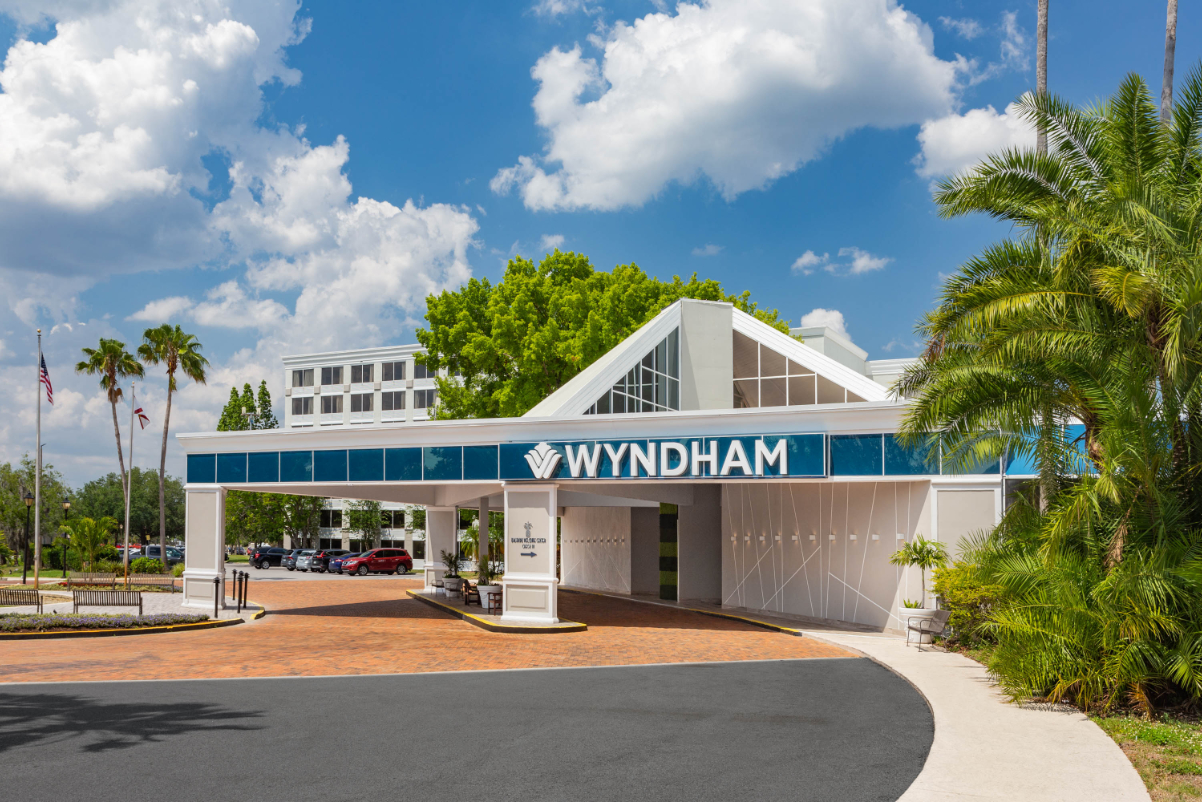Skift Take
Looking ahead, Wyndham executives said they weren't concerned about competition from Marriott, Hilton, and Hyatt in the extended-stay segment because they believe their model is aimed at delivering a more affordable product with lower costs for developers.
Wyndham Hotels & Resorts reported on Thursday that it saw weaker profitability in the second quarter. The operator of hotels with about 851,500 rooms worldwide faced tough year-over-year comparisons. Its portfolio skews toward affordable roadside hotels, which benefited especially strongly in the immediate months of the pandemic easing.
“Second quarter trends in the U.S. represented a moderation of the robust leisure travel growth we saw last year, which largely favored select service hotels,” said Michele Allen, chief financial officer, in a call with analysts. “Now, as travel habits are normalizing, we’re seeing a revival in center city and international vacations, partially counterbalancing the robust summer demand our hotels experienced last year, particularly in Florida and across the South Atlantic region.”
The operator of 24 brands — such as Days Inn, Super 8, and Wyndham Garden — saw its net income decrease 18% in the quarter. It said this drop reflected a few factors, such as higher interest expense primarily related to the company’s refinancing of a loan. EBITDA was down 15%.
The company’s loyalty program, Wyndham Rewards, had relatively sluggish growth. While larger companies saw double-digit percentage growth rates in their memberships, the company only expanded its rolls by 2 million members in the quarter, to 103 million.
Rivals Appear in Extended-Stay
In November, the company introduced its Echo Suites Extended Stay by Wyndham brand in the U.S. and Canada. Since then, extended stay has become the hottest category in hotels, with Marriott, Hilton, and Hyatt all adding brands.
Wyndham said it wasn’t concerned about the competition. Earlier this week, it said it had signed 60 more hotels for the brand, bringing the development pipeline to 265 hotels (with about 33,000 rooms).
“These competitive launches are not economy extended stay competitors,” said CEO Geoffrey Ballotti. “They’re much bigger mid-scale boxes that are over 20% larger, with additional elevator banks, larger public spaces, and higher amenity requirements and operating costs.”
The new brand helped boost the company’s development pipeline, the company’s executives said. Across all brands, the company signed 24,000 rooms in the quarter, a 6% year-over-year pace and a level that was 7% above its pre-pandemic pace in the second quarter of 2019.
“Our Echo developers continue to believe that Echo will drive a higher ROI [return on investment for owners] due to much lower cost per key, lower ongoing operating costs, and higher gross operating profits,” Ballotti said.
“We believe that the 1.8 million companies [in the U.S.] contracting for accommodations for their infrastructure workers are going to be seeking economy average daily rates with an average length of stay approaching over 30 nights versus that midscale and above average daily rate,” Ballotti said. “It is a very large and underpenetrated segment.”
Have a confidential tip for Skift? Get in touch
Tags: budget hotels, earnings, extended stay, extended stays, future of lodging, hotel development, hotel earnings, wyndham, wyndham hotel group, wyndham worldwide
Photo credit: The Wyndham Orlando Conference Center Celebration, owned by AD1 Global, in Florida. Source: Wyndham.
